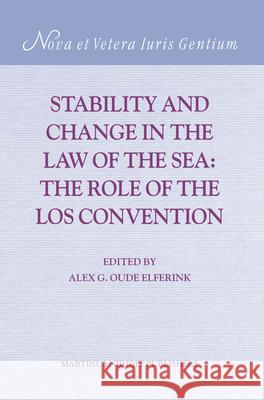Stability and Change in the Law of the Sea: The Role of the Los Convention » książka
Stability and Change in the Law of the Sea: The Role of the Los Convention
ISBN-13: 9789004146136 / Angielski / Twarda / 2005 / 268 str.
Stability and Change in the Law of the Sea: The Role of the Los Convention
ISBN-13: 9789004146136 / Angielski / Twarda / 2005 / 268 str.
(netto: 669,32 VAT: 5%)
Najniższa cena z 30 dni: 702,79 zł
ok. 30 dni roboczych
Bez gwarancji dostawy przed świętami
Darmowa dostawa!
The adoption of the United Nations Convention on the Law of the Sea in 1982 has led to a period of relative stability in the law of the sea. However, especially in recent times there have also been calls to amend the Convention because of supposed shortcomings. Renegotiation of the Convention in all probability would be a time consuming process, the outcome of which is highly uncertain. Such a process would almost certainly negatively impact upon international cooperation in the management of ocean space as it is bound to lead to uncertainty and conflict over the applicable legal regime. This work looks at topics, which can contribute to an understanding of how the Convention has been adapted to newly arising issues and how further adaptation may be achieved in the future, without a readjustment of the basic legal framework contained in the Convention. Issues reviewed are: the question to what extent the Convention provides a 'constitution for the oceans'; the roles of the UN General Assembly and the Meeting of States Parties to the Convention in reviewing its implementation; the impact of state practice on the Convention and vice versa; and the significance of the formal amendment procedures and other mechanisms to adapt the Convention to changed circumstances.











